
Le retour du politique et des peuples souverains contre le néo-bolchevisme mondialiste
Date de publication: 15.12.2016
par Dario CITATI
Directeur du Programme de recherche "Eurasie" à l'Institut d'Etudes Géopolitiques de Rome
Ex: http://www.idc-europe.org
Mesdames et Messieurs,
Je voudrais commencer mon intervention par une courte analyse du referendum italien pour dessiner les contours d’une analyse systémique sur l’état de lieux de la politique nationale des Pays occidentaux, tirer un bilan du passé récent et essayer d’identifier le prochaines étapes qui se profilent à l’horizon.
Comme vous le savez, le 4 décembre le peuple italien a voté « non » au referendum sur la Réforme constitutionnelle en Italie. Ce résultat a été justement appréhendé à l’étranger comme une votation allant au-delà de la question en elle-même de la Constitution et touchant le cœur de la politique nationale, avec des rebondissements importants au niveau européen. Le Président du Conseil Matteo Renzi a en fait résigné sa démission ouvrant une crise politique qui est toutefois terminée avec la formation d’un nouveau gouvernement, représentant de fait la continuation du précédent, quoique avec un nouveau Premier Ministre, Paolo Gentiloni, le très « renzien » ancien Ministre des Affaires Étrangères. Le scénario le plus probable maintenant est la continuation de ce gouvernement technique jusqu’en 2018, et seulement après l’approbation d’une nouvelle loi électorale il y aura des élections politiques.
Matteo Renzi a commis en effet une grave erreur pendant toute la campagne référendaire qui finalement l’a obligé a démissionner. D’un côté, il a toujours affirmé que le referendum ne concernait que l’architecture institutionnelle de l’Italie (avec la réduction du nombre des parlementaires, des fonctions nouvelles pour le Sénat italien, la simplification des mécanismes législatifs etc), en invitant justement à s’exprimer pour le « oui » tous ceux qui étaient, selon la propagande électorale, pour l’amélioration du système italien. De l’autre côté, toutefois, et d’une façon ouvertement contradictoire avec ce que je viens d’exposer, il a en même temps « personnalisé » le referendum en le transformant dans un test de confiance sur le gouvernement lui-même justement en promettant d’une manière solennelle que si le peuple italien refusait sa réforme il allait démissionner. N’oublions pas, d’ailleurs, que Matteo Renzi avait été nommé Premier Ministre en 2014 par le Président de la République après l’énième crise de gouvernement en Italie, et avec toute évidence il souhaitait que un résultat positif puisse représenter cette « légitimation démocratique » à l’action de son exécutif, qu’on lui reprochait de ne pas disposer justement parce que son gouvernement n’était pas issu d’une majorité parlementaire aux élections.
Cette erreur stratégique, ce mélange de langage institutionnel et personnalisation, a bien couté la défaite à Renzi. La réforme en soi étant assez technique dans beaucoup d’aspects, le peuple italien avec une écrasante majorité (59% de « non ») a exprimé sa désapprobation envers Renzi en tant que Premier Ministre. Je ne vais pas parler ici de la réforme dans tous ses aspects, mais je peux vous donner quelques éléments concrets témoignant que ce projet n’était pas du tout une initiative à caractère purement « nationale ». Le projet de réforme prévoyait en effet un renforcement caché mais indubitable du rôle de l’Union Européenne à travers la modification de trois articles de la Constitution italienne: l’article 55, le 70 et le 117. Aux articles 55 et 70, lorsque en distinguait les matières conjointes sur lesquelles la Chambre des Députés et le Sénat auraient continué à s’exprimer ensemble, le projet de réforme prévoyait l’insertion de la formule suivante : « la fonction législative est exercée par les deux Chambres [sur un ensemble des thèmes limités parmi lesquelles] «l’actuation de normatives venant de l’Union Européenne ». Il s’agit d’une référence directe à l’UE qui était absente de la version précédente.
D’une manière encore plus explicite et directe, l’article 117 était censé avoir la suivante intégration : « le pouvoir législatif du Parlement italien est exercé par l’Etat central et par les Régions conformément à la Constitution italienne et aux obligations venant de l’Union Européenne» (en italien : « nel rispetto della Costituzione e dei vincoli derivanti dall’ordinamento dell’Unione Europea »). Le texte précédent – c’est-à-dire le texte actuel, la réforme ayant justement échoué – disait « conformément à la Constitution italienne et aux engagements internationaux de l’Italie », donc une référence très générale aux accords internationaux qui n’indiquait aucune « contrainte » spécifique. Or je ne suis pas un juriste, mais il me semble très clair que si cette réforme constitutionnelle avait été approuvée, les normes et les mesures de l’Union Européenne auraient été mises sur le même niveau des lois votées par le Parlement italien car cela serait écrit noir sur blanc dans la Constitution italienne.
Bien sûr, dans le débat publique l’on n’a pas touché directement ces points en particulier (bien au contraire, les promoteurs du référendum ont insisté sur le caractère strictement « italien », « national » de la réforme) mais justement grâce à la « personnalisation » de la consultation populaire, à laquelle j’ai fait référence précédemment, il a été possible de rassembler dans ce 59% de « non » les opposants à la réforme dans son ensemble, les mécontents du gouvernement Renzi, mais aussi les « eurosceptiques », c’est-à-dire ceux qui comprenaient que la réforme était aussi une ultérieure cession de souveraineté nationale.
Or comment est-ce qu’on peut interpréter ce résultat italien sur le fond des événements récents de 2016 ?
S’il ne faut pas surévaluer ce résultat (n’étant pas un referendum sur l’Union Européenne), il ne fait pas de doute que la victoire du « non » en Italie s’insère dans le cadre de cette « révolte contre les élites » en cours dans tout l’Occident, dont les signes plus évident en 2016 ont été le Brexit, la victoire de Donald Trump, et en général la montée de ce qu’on appelle couramment « les forces populistes ». Il y a du moins trois thèmes en commun parmi les différents contextes: le premier, c’est l’opposition à l’immigration massive et le sursaut identitaire des peuples européens face à un phénomène de plus en plus difficile à gérer; le deuxième, c’est la méfiance à l’égard du modèle politico-économique dominant avec une croissance de la perspective « souverainiste », prônant un renforcement des Etat nationaux aussi bien sur le plan institutionnel (les processus décisionnels des organismes supranationaux étant mis sous question) que sur le plan économique, avec un retour d’idées plus ou moins « protectionnistes » ; troisièmement, la croissance d’un sentiment de révolte contre l’hégémonie culturelle du post-modernisme au nom des valeurs traditionnels (famille homme-femme, subsidiarité, sens de la communauté contre l’individualisme libérale).
Toutes ces positions ont aussi en commun la délégitimation totale, le discrédit publique que la plupart des médias leur a réservé. La campagne contre le Brexit au Royaume-Uni, la campagne contre Donald Trump et précédemment celle contre la Manif pour Tous ici en France ont été marquées par un discrédit total qui manifeste un appauvrissement de la culture politique générale, un nivèlement du débat publique au nom d’un progressisme qui n’admet pas de critiques. On peut affirmer que les grandes cultures politiques du XX siècle se sont égarées dans une amalgame postmoderne qui est à la fois floue dans ses contenus et agressive dans la déqualification des adversaires.
La culture de gauche postsocialiste, par exemple, a de fait abandonné sa prétention de représenter les classes défavorisées, à cause aussi d’une certaine incapacité culturelle d’interpréter la complexité du contexte socio-économique de la globalisation, où le malaise social est transversal et l’on ne peut plus lire la réalité avec la catégorie quelque peu simpliste da la lutte de classe. Avec très peu d’exception la gauche a replié son activité sur les droits de l’homme, plus précisément sur les nouveaux présumés droits des minorités.
La culture libérale classique, quant à elle, a connue aussi une mutation intérieure, en perdant complètement sa connotation conservatrice. Dans la tradition libérale (et tout particulièrement dans le libéralisme anglo-saxon, qui représente peut-être le libéralisme par antonomase), le concept de liberté avait été toujours envisagé sous la forme de liberté économique, de soutien à l’esprit d’initiative privé contre le pouvoir excessif de l’Etat, mais cela n’impliquait aucunement une vision « libertaire » de la société dans son ensemble. Bien au contraire, si l’on pense aux derniers représentants politique de ce libéralisme anglo-saxon, Margaret Thatcher et Ronald Reagan, leur libéralisme économique s’accompagnait pour ainsi dire à une « vision musclée » de la société, à un certain conservatisme éthique.
À la suite de cette mutation, les partis de gauche et les partis libéraux participent aujourd’hui de ce nivèlement de la culture politique tournant autour des mêmes axes : le mythe du « migrant » (portes ouvertes à tout le monde en Europe), le mythe de l’égalité contre nature (mariage et adoption d’enfants pour les couples du même sexe) ; le mythe néo-panthéiste de l’écologie (défense des « droits » des animaux comme s’ils étaient des êtres rationnels et catastrophisme environnementaliste).

Cette convergence entre libéralisme et gauchisme représente justement le point d’arrivé d’une mentalité qui accuse de populisme toute forme d’opposition, et que je n’hésiterais pas à définir « néo-bolchevique ». Je dis cela avec référence directe à l’histoire du XXème siècle : en tant qu’historien spécialisé sur la Russie, j’ai eu occasion de consulter pas mal de sources, de témoignages littéraires et journalistiques de l’époque de la Révolution d’Octobre. Le volet le plus caractéristique de la mentalité révolutionnaire, c’était justement la déqualification totale de l’adversaire : les bolcheviques parlaient d’une « culture bourgeois » à détruire avec le même mépris avec lequel le discours officiel dit « modéré » jette son discrédit sur le « populisme ».
Si l’on devait résumer cette mentalité, peut-être rien ne la représente mieux qu’une phrase du Président sortant Barack Obama, prononcée en 2014 pendant la crise ukrainienne et répétée maintes fois dans les années suivantes. Pour critiquer la politique de Moscou, M. Obama avait affirmé que la Russie est « sur le mauvais côté de l’histoire » (Russia is on the wrong side of history). Cette esprit est la codification verbale de la polarisation absolue typique chez la mentalité bolchevique : nous, les porteurs du progrès, définissons le bien. Vous, les autres, n’avez pas droit de citoyenneté justement parce que vos positions se situent sur le mauvais côté de l’histoire. L’opposition massive à cet état d’esprit, légitimée par le vote démocratique, n’est pas seulement un retour des peuples sur la scène européenne mais constitue aussi un retour du politique, un enrichissement du débat publique dans chaque pays.
Néanmoins, rien ne serait plus erronée que de s’appuyer sur une vision manichéenne de la réalité, qui en fait ne serait qu’une reproduction du schématisme que je viens de critiquer. Comme le disait Joseph de Maistre, « une contre- révolution ne doit pas être une révolution contraire, mais le contraire d’une révolution ». Si donc la vision révolutionnaire et « néo-bolchevique » contemporaine se base sur la division entre noir et blanc, il ne faut pas céder à la tentation complotiste de voir un projet compact e coordonné de « nouvel ordre mondial » mis en question par un front souverainiste également unitaire qui dans chaque Pays européen partagerait les mêmes buts (immigration, économie, repositionnement géopolitique à l’égard de la Russie et des Etats-Unis, thèmes éthiques, etc.)
Bien au contraire, revenir à une perspective nationale et souveraine signifie aussi s’attendre à une rivalité ouverte entre nations, surtout sur le plan géopolitique. Par exemple, en Europe Orientale les pays du Groupe Visegrad – Pologne, Hongrie, République Tchèque, Slovaquie – sont aujourd’hui les plus critiques à l’égard de l’immigration massive et de l’idéologie du gendre promue par l’UE, mais aussi les plus étroits alliés des Etats-Unis et les plus méfiants à l’égard de la Russie. Cela démontre qu’on peut s’opposer durement à l’Union Européenne sur des sujets fondamentaux - sans pour autant prôner une vision géopolitique différente. Par ailleurs, pas mal de problèmes qui affectent le Proche-Orient sont le résultat d’une rivalité structurelle entre les Pays européens dans l’échiquier méditerranéen, par exemple entre la France et l’Italie en Lybie. L’éventuelle montée au pouvoir de forces souverainistes dans ces Pays n’annulerait pas cette rivalité. Si l’ennemi globaliste semble rassembler les peuples d'Europe dans un front commun, sur les thèmes concrets leurs choix et leur priorités vont être différents lors de la prise du pouvoir des forces souveranistes.
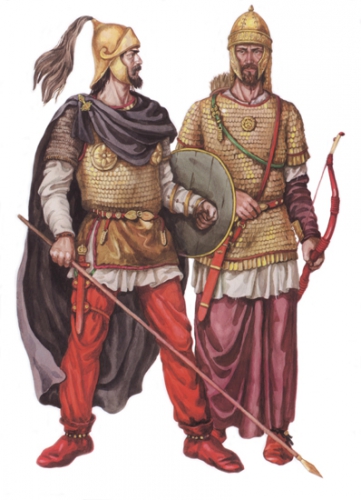
Mesdames et Messieurs,
le 2017 va donc s’ouvrir sous le signe de la lutte. Les résultats les plus importants de ces derniers événements de 2016 – Brexit, Trump et la montée du souverainisme dans chaque pays – démontrent à mon avis que dans l’histoire rien n’est inéluctable, mais aussi que le travail est tout à faire. A cet égard j’aimerais bien conclure avec un exemple historique auquel je tiens beaucoup.
En 303 après Jésus Christ, l’empereur Dioclétien commençait la plus féroce persécution antichrétienne de l’histoire de l’Empire romain: recherchés, torturés, « jetés aux lions », les chrétiens étaient réduits à une petit groupuscule agonisant entre les années 303 et 305. Sans aucun doute, n’importe quel observateur contemporain de ces faits aurait dit que le christianisme n’était qu’une secte en cours de disparition et que l’Empire romain païen, tout en étant affligé par des tendances centrifuges, allait continuer à exister. Peut-être l’extinction des chrétiens aurait-elle été prévue par cet hypothétique observateur des événements du 303-305 avec la même certitude (voire avec un certitude supérieure) avec laquelle on nous a dit dans les années passées que l’idée de sortir de l’euro et de l’UE était quelque chose de complètement "anti-historique", un véritable tabou qu’une personne cultivée ne devrait même pas poser.
Mais voilà que dix ans après, en 313, un nouvel empereur, Constantin le Grand, renverse la situation – pour des raisons qui encore aujourd’hui n’ont pas été totalement décryptées – avec son Edit de Milan qui finalement octroie la liberté religieuse pour les Chrétiens. Ce geste, que personne n’avait prévu ni pouvait absolument prévoir, est le point de départ d’un changement extraordinaire : de ce moment-là, les chrétiens augmentent de nombre, leur credo se répand dans toutes le couches de la société et après un siècle et demi l’Empire romain n’existe plus mais une nouvelle civilisation, qui à la fois est héritière de cet Empire et en rupture avec elle, va naitre sous le signe de la Croix et de l’Aigle Romaine. Toute l’histoire de la civilisation européenne aurait été complètement différente sans la détermination acharnée de ces chrétiens persécutés, qui n’ont jamais cessé de lutter et résister lorsque aucun espoir de victoire était prévisible, et qui ont bénéficié de l’Edit de Constantin juste au moment où cela était totalement inattendu.
Je pense en conclusion que ce fin 2016 représente une invitation à revenir un peu à cet « esprit constantinien », c’est-à-dire à une attitude qui se nourrit de confiante clairvoyance dans l’attente du futur et en même temps de persévérance dans le combat à l’heure présente. En gardant bien sûr un esprit analytique et sans aucun fanatisme, les surprises de 2016 nous autorisent à hisser pour la nouvelle année cet esprit constantinien contre la présomption de croire qu’il y a un « bon coté de l’histoire », opposé au mauvais où nous serions plongés, vers lequel le coryphées du progrès de l’humanité – les bolcheviques d’hier et d’aujourd’hui – prétendent nous conduire.







 del.icio.us
del.icio.us
 Digg
Digg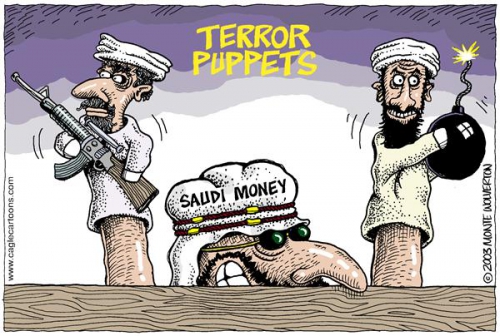
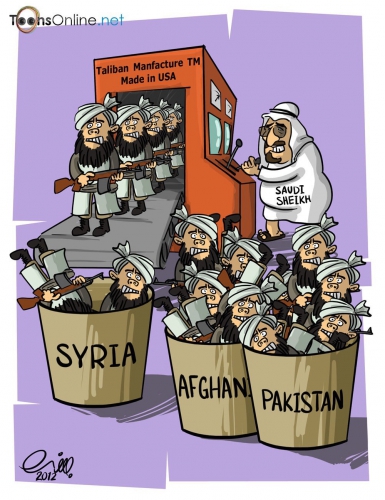
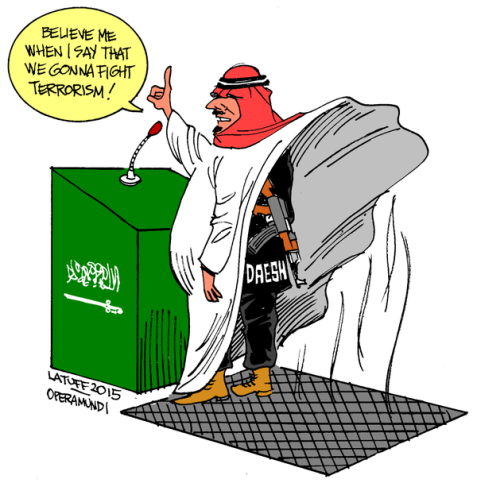
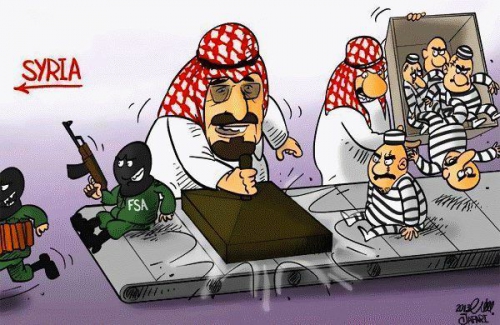
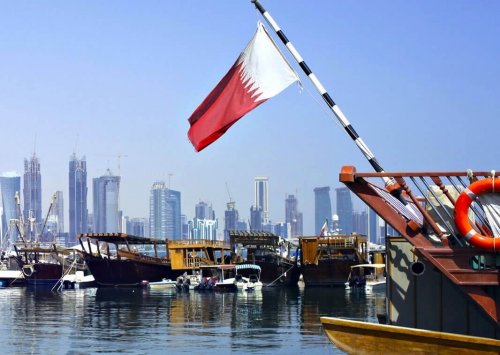
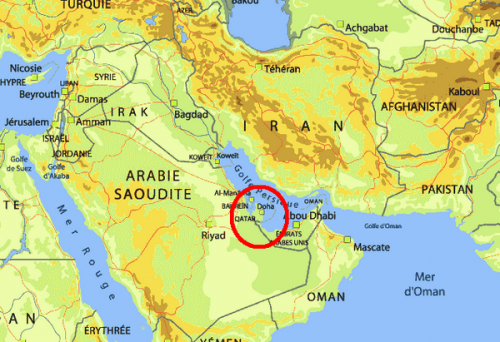
Comentario: Recomendamos leer: